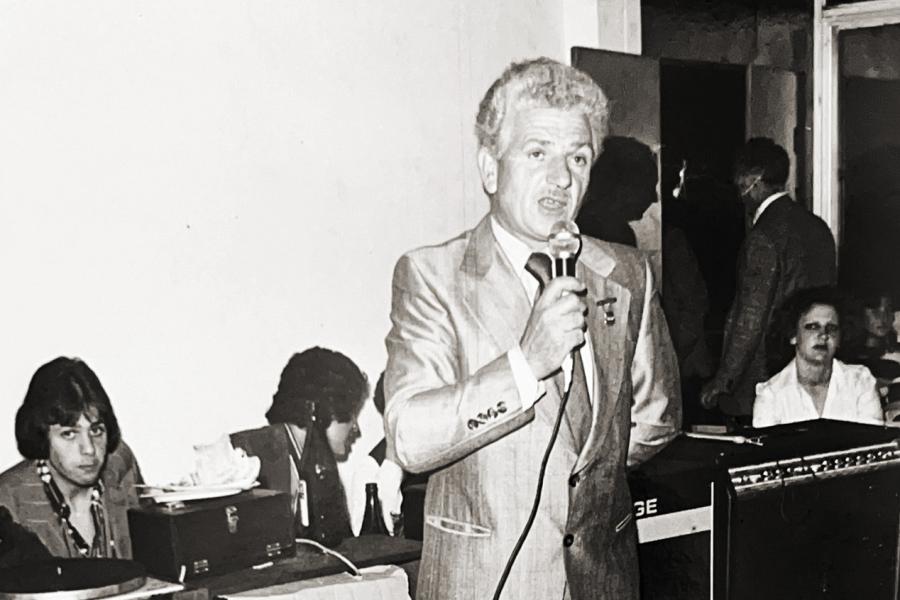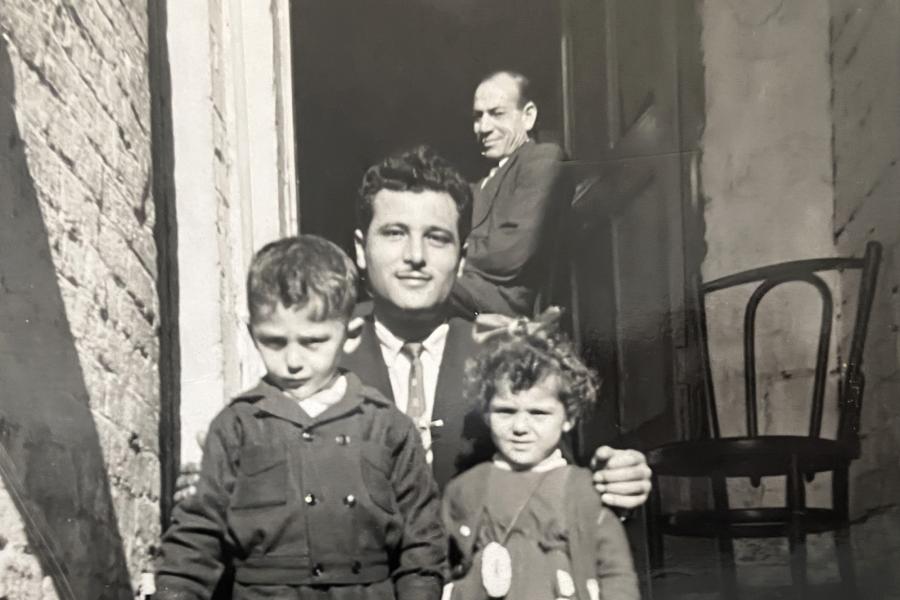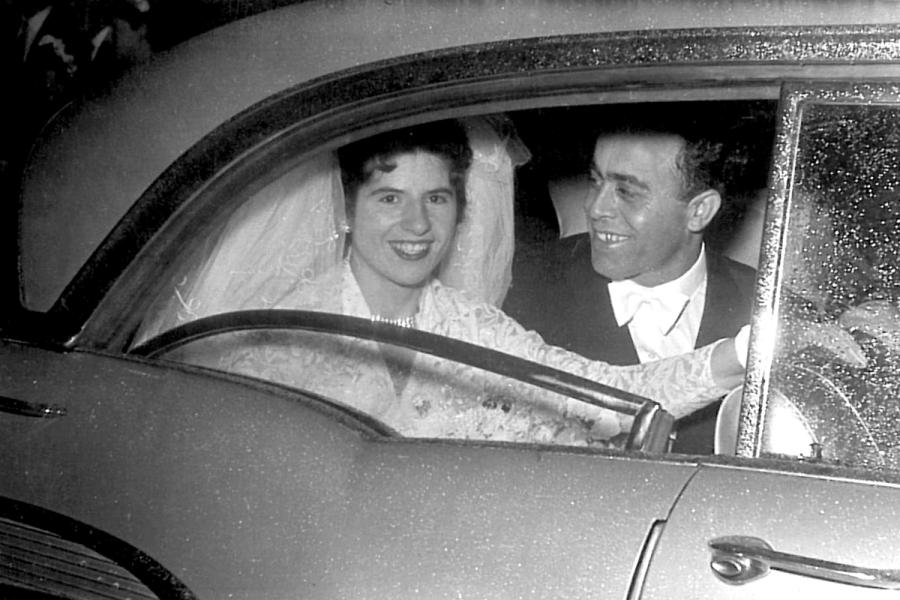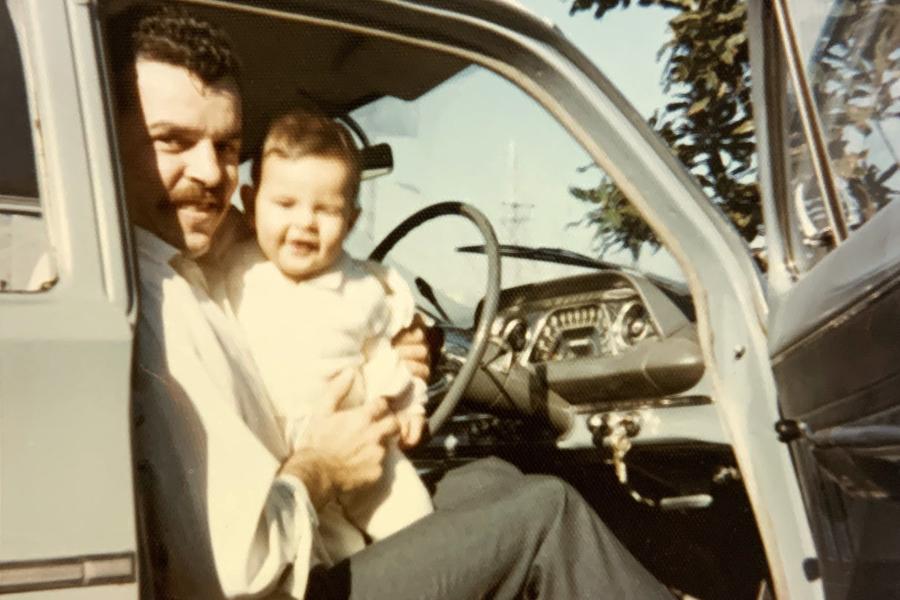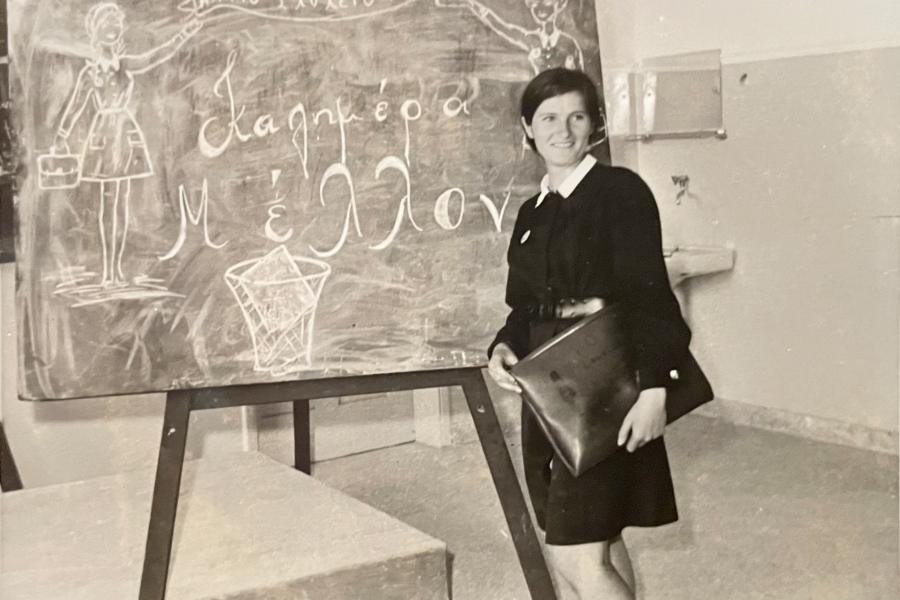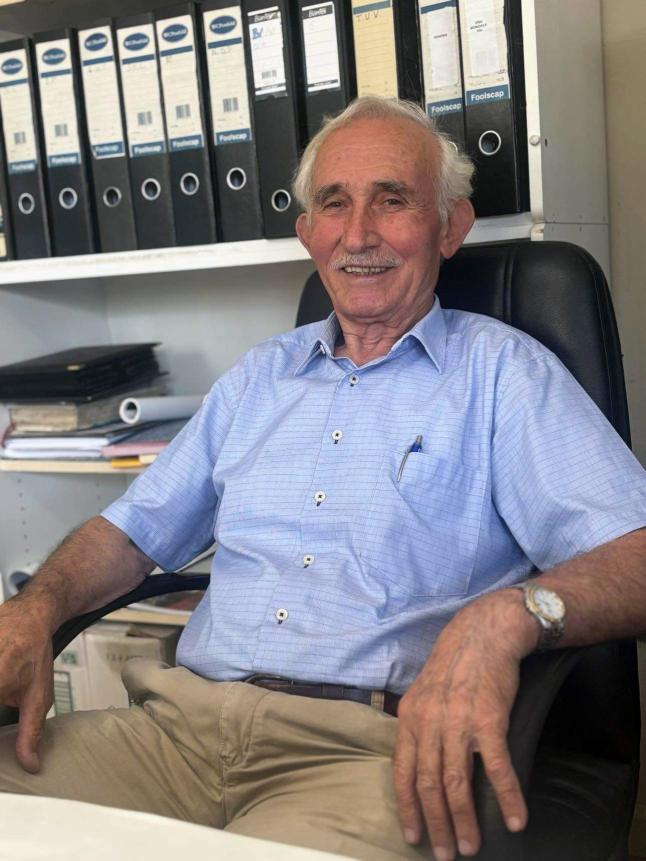

Speaker background
Bill Anton is the fifth of six children born into a farming family in the Ilia region of the Peloponnese in 1938. He was unable to complete his schooling and from a young age assisted his family on the land, cultivating wheat and herding sheep. When he completed his military service, Bill married a girl from his village and became a father soon after. In 1964 he decided to join his brother in Sydney who had migrated two years earlier. After working in several factory jobs, Bill managed a chain of delicatessens called Balkan Foods which imported Greek products. In 1969, he ventured into his own business in inner-city Darlinghurst, opening a fruit and grocery shop. After twenty years, he sold the business and found new premises in Marrickville, where he concentrated on importing Greek products. Bill is among the first importers of Greek artesian water and olive oil.
Interview summary
Bill describes the devastating impact of World War 2 and the Greek Civil War on his family. He recounts his attendance at English language classes during his military service. He describes the chaotic scene when passengers disembarked in Sydney. He recalls the language difficulties encountered in the early days of his arrival and the long working hours in his Darlinghurst fruit shop. Bill also gives an account of his business dealings with Greek suppliers in the importation of Greek artesian water and olive oil.
Interview highlights
highlight
Bill describes the speech given by the ship’s captain in 1964 when passengers were preparing to disembark in Woolloomooloo.
Bill: He spoke to us and said, ‘We’ve now left Greece behind. We’re coming to a country which has laws, it has respect, and we must show that we are civilised people. So, when we go outside, we must keep our distance from each other and remain in line. In this orderly manner, we will show who we are, and the respect we have for the country we are coming to.’ But when we were coming off the ship, everyone was running, and everyone was pushing each other. It was a chaotic scene in reality. Then the captain came out again. He spoke again and said, ‘If we don’t maintain order, I will put you back on the ship and return you to Greece. They shouldn’t call me a captain if I don’t remain true to my word.’ He shouted a lot and we all got into line.
Timecode 16:03 - 17:19
highlight
Bill started working in a factory within two days of his arrival. He recalls getting on the wrong bus to work and his frustration at being unable to communicate in English.
Bill: After two days my brother took me. He showed me which bus I could take, where to get off. Naturally a young person understands all of this. The next day my brother was working night shift. He said he’d take me. I said, ‘No, it’s easy I know how to get there. I’ll take the bus. I know where to get off.’ In those days on Botany Road there were buses. One after the other, as it was an industrial area. I ended up getting a different bus and it went through Alexandria. When it changed route, I realised it. I couldn’t speak any English. I got off and got on another bus. The fact that I didn’t know how to ask a question or how to communicate really shook me. I’ll tell you that I cried, finding myself in despair. At that point, I said if I don’t learn English I’m leaving. I attended night school which was available.
Timecode 18:11 - 19:21
highlight
In 1970, Bill returned to Greece after receiving unexpected news that his mother had an accident and didn’t have long to live. He describes his concerns about leaving his family behind and the support provided by Australian authorities.
Bill: During that time, we had bought a shop. My children were small. My son was only 2 or 3 months old, and I was going to be leaving a woman with very little English in a shop and with no money. We had bought the building and the shop. The love one has for a mother, shall I say, forced me to go to the bank, to get a loan. The manager wasn’t there as he was on leave. When I explained my story to the relieving manager, he said I should go and to tell my wife she can write as many cheques as she wants. He said I could pay them when I returned. This was nice. It gave me encouragement. I also had to get a passport. I went to the Immigration Department, and I talked to the lady on the desk. She said you need to write a letter. State your reasons. You will bring it back, and I will give it to those in authority to make the decision to give you a passport. I thought I will need to write a letter, but my English isn’t good. I’ll need to bring it back and my mother only has days to live. She said give it to me. She wrote the letter herself; she signed it and gave me the passport. That is what I call kindness of a person. That you can respect. And that’s why I said I have never regretted coming to this country. She gave me what I wanted.
Timecode 11:44 - 13:44
